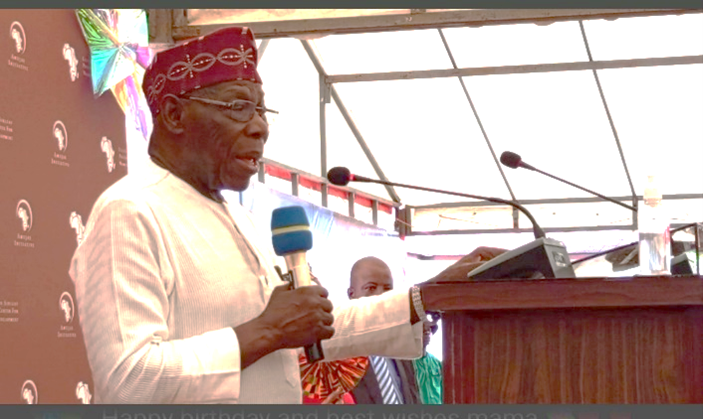Former Nigerian President Olusegun Obasanjo has called for a renewed focus on gender equality and the representation of women in leadership roles throughout Africa and beyond. Speaking at the 86th birth anniversary celebration of former Liberian President Ellen Johnson Sirleaf in Monrovia, Liberia, on October 29, 2024, Obasanjo emphasized that the inclusion of women in decision-making processes is essential for sustainable development and addressing societal challenges. He argued that the contributions of women are fundamental to realizing Africa’s potential and achieving a more inclusive and effective governance structure that benefits society as a whole. This rallying cry comes at a time when issues of gender representation are increasingly recognized as critical for the overall progress of nations and the continent.
Obasanjo pointed out that the current lack of women in leadership positions significantly hinders progress and development across the continent. He articulated that gender equality in governance is not merely a matter of fairness but a necessity for comprehensive decision-making. Highlighting the importance of equal participation from both genders, he noted that when women are suppressed and excluded from decision-making, the potential for effective governance and societal advancement is stifled. During his remarks, he passionately asserted, “Women and men were meant to be whole, not half,” conveying that gender-balanced leadership is vital for effective governance and progress.
The gathering was attended by a diverse audience, including diplomats, government officials, family members, and supporters, all celebrating Sirleaf’s legacy in leadership. Obasanjo paid tribute to Sirleaf, recognizing her instrumental role in promoting unity and her contributions to regional and international organizations like ECOWAS, the African Union, and the United Nations. He pointed out Sirleaf’s rare ability to remain impactful long after her term as president, underlining her ongoing commitment to women’s development initiatives, exemplified by her work with the Women Center for Development. Obasanjo’s commendation highlighted the importance of perseverance in leadership, as he expressed admiration for Sirleaf’s refusal to yield to fatigue and her continuous efforts to empower African women.
In addition to honoring Sirleaf, Obasanjo pledged his support for the Amuja Women’s Center for Development, emphasizing the importance of sustaining initiatives dedicated to uplifting women in Africa. This pledge reflects a broader commitment to nurturing women’s leadership and promoting gender equity, as these initiatives are essential for the continent’s overall development. By advocating for increased support for such programs, Obasanjo is aligning with global shifts toward recognizing women’s rights and leadership as integral to societal progress.
Madam Sirleaf responded to Obasanjo’s praise with gratitude, acknowledging the inspiration she derives from his strength and vitality. She also recognized the critical role of both local and international organizations in supporting initiatives that unite women across Africa. Her remarks reinforced the need for collective efforts to foster a collaborative environment that empowers women, particularly in leadership roles, advocating for mentorship and resources that prepare young women to enter public and private leadership positions.
The celebration coincided with the activities of the African Women Leaders Network (AWLN), which was holding its 6th International Leadership Retreat in Margibi County, Liberia. This continental platform aims to galvanize women’s leadership across Africa, creating networks and opportunities for women to prepare for leadership in various sectors. The event brought together prominent feminists who shared strategies on how to cultivate leadership skills among young women, highlighting the importance of community and collaboration in advancing women’s rights and representation across the continent.
In conclusion, Obasanjo’s remarks at the celebration of Ellen Johnson Sirleaf served as a powerful reminder of the vital role women play in shaping governance and driving societal progress. His call for greater representation of women in leadership positions reflects a growing recognition that inclusive governance is essential for sustainable development in Africa and beyond. The emphasis on collective action, mentorship, and support networks underscores the necessity of joining forces to create a future where women’s voices are valued and included in decision-making processes, ultimately leading to more equitable and effective governance. As Africa continues to navigate its challenges, the push for gender equality in leadership will be crucial for unlocking the continent’s full potential and ensuring a balanced, inclusive society.














